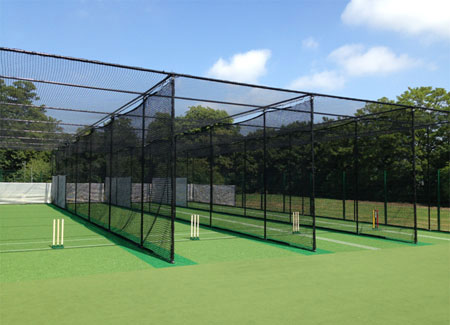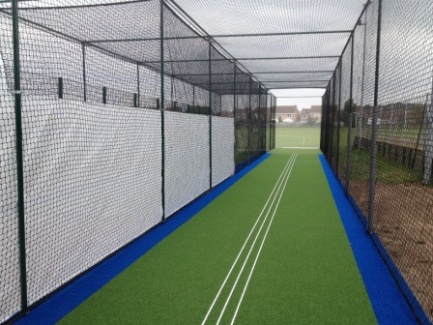
Flooded Non-Turf Grounds: Expert Advice from total-pla
3rd February 2016
Impact of flooding on non-turf cricket facilities
In addition to the more obvious effects, like soaked and dislodged carpet, flooded non-turf cricket practice nets and flooded non-turf cricket match pitches can be affected in ways that may not be immediately visible to the untrained eye. One of the most subtle effects can be the disruption of the non-turf cricket surface’s aggregate base construction. Water logging can shift aggregates around, and water moving up through the surface can transport very fine particles through the layers. This can result in unbalanced surface levels which, in turn, can produce an inconsistency in bounce; directly affecting performance in both flooded non-turf practice net systems and flooded non-turf cricket match pitches.
Flooding can also displace both shock pads and carpets. This generally depends on the fixing method and type of carpet used – however, carpets generally tend to float, which means they become stretched and do not regain their original tension.
Once floodwater has subsided, there will be a lot of contaminants left on the surface – debris can include anything from pieces of stone, glass and plastic to very small silt, sand and clay particles. While larger pieces of debris are easy to remove by brushing or blowing over the surface once the water has subsided, small particles are harder to remove and can inhibit the system’s drainage capabilities. Depending on where the water originated, it may well be necessary to treat the playing surface and netting with a suitable disinfectant spray.
If your club has been affected by flooded non-turf cricket practice nets or flooded non-turf cricket match pitches, it is strongly advised to seek expert advice before tackling the clean-up operation to ensure the facility is restored to meet performance quality standards.
For free, impartial advice regarding your flooded non-turf cricket practice nets or flooded non-turf cricket match pitch, call 01604 864575
Back to news








